India army on war footing to rescue survivors as flood toll nears 270
Prime Minister Narendra Modi has blamed climate change for the deluge
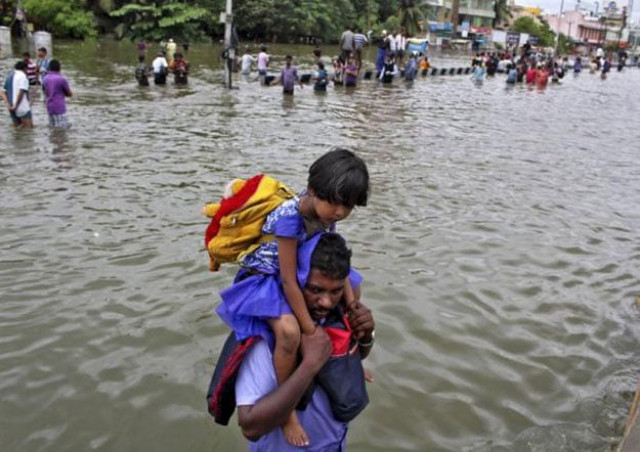
A man carries a girl through a flooded road in Chennai, December 2, 2015. PHOTO: REUTERS
Predictions of incessant rainfall by the weather office meant that the army had to work on a war footing to rescue survivors trapped in inundated parts of Chennai, India's fourth most populous city.
Prime Minister Narendra Modi, who has blamed climate change for the deluge, travelled to Chennai to get a first-hand view of a rescue effort that has so far been halting.
Chennai floods: Indian newspaper The Hindu not published for first time in 137 years
"Chennai has become a small island. This is unprecedented," Home Minister Rajnath Singh told parliament. "Rapid rescue and relief is the need of the hour. We are working very hard to restore normality."
After auto manufacturers and IT outsourcing firms suspended operations on Wednesday, state-run Chennai Petroleum shut down its 210,000 barrels per day oil refinery due to the heavy flooding.
There was sporadic rainfall on Thursday, after a 24-hour cloudburst dumped as much as 345 mm (14 inches) of rain on the city earlier this week.
"We live in a city expecting that we will have access to basic facilities. But today, we have no drinking water, no fresh food and no control over our lives," said Sudha Raman Murthy, a mother of two teenage daughters.
Murthy said parts of her house were under water. She was using pots and pans to bail water out of her rooms.
Cut Off
Floods cut off more than three million people from basic services and hampered rescue efforts by the army, which has so far evacuated 18,000 people from rooftops and outlying villages.
City authorities were deploying bulldozers and bags of concrete to repair collapsed roads, while several bridges were under water as urban lakes in the low-lying coastal city of six million overflowed.
Train services and flights to Chennai, capital of the southern state of Tamil Nadu, remain cancelled and the navy has pressed fishing boats into service to evacuate people from the worst-hit suburbs to temples, schools and wedding halls.
India deploys troops in south as deadly floods worsen
A senior federal official said more than 1,000 people had been critically injured and were rushed to government hospitals by paramilitary forces.
"We want to do everything but the problem is beyond our control. The airport is flooded, train networks have collapsed and the weather is still not conducive," Home Ministry spokesman K.S. Dhatwalia said in New Delhi.
Additional rainfall of 100-200 mm (4-8 inches) was predicted from Thursday through Sunday, meaning the situation could remain critical for several more days.
The federal government pledged $141 million in immediate relief and launched a survey to assess losses to life and property.
Experts said haphazard construction work, faulty drainage and a build-up of garbage has contributed to the flooding.
"Chennai is stinking and it is shocking to see how it has collapsed in the last 48 hours," said Anant Raghav, 56, a professor at the University of Madras.
More than 5,000 houses were under water with many people still trapped on rooftops, while others crowded in relief camps.
About 30 families have been sleeping rough under a flyover in central Chennai for the last week after their huts and small concrete houses were washed away.
Cultural activist VR Devika, 61, said many people were offering free accommodation and home cooking via social media.
"People are giving out food. Those with big vehicles are driving around rescuing people," she said by telephone.


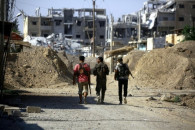
1724148693-0/BeFunky-collage]_____-(24)1724148693-0-208x130.webp)
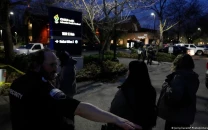
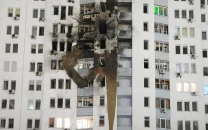
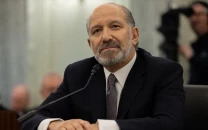












COMMENTS
Comments are moderated and generally will be posted if they are on-topic and not abusive.
For more information, please see our Comments FAQ